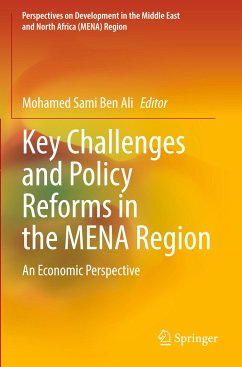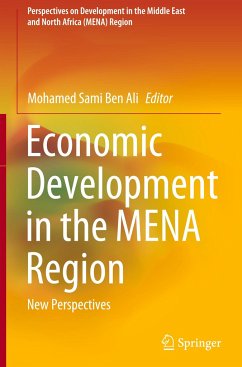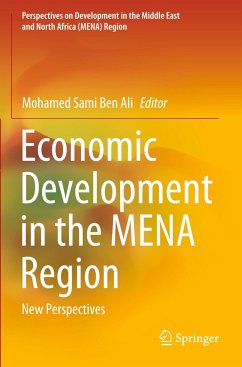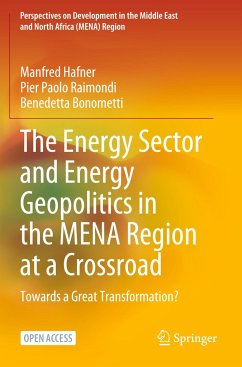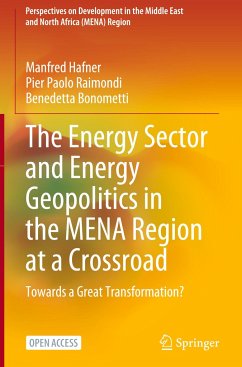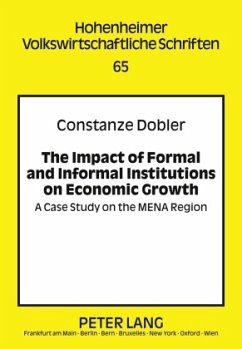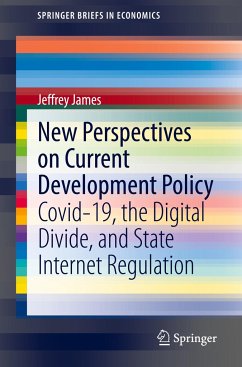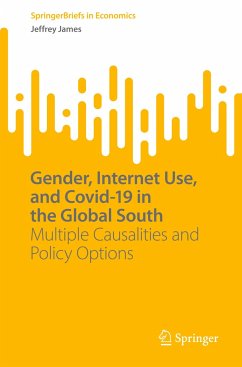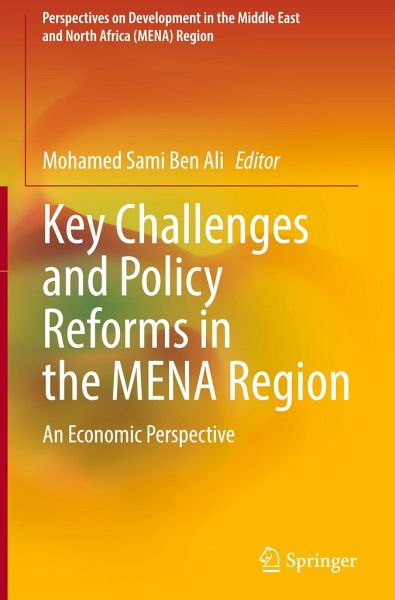
Key Challenges and Policy Reforms in the MENA Region
An Economic Perspective
Herausgegeben: Ben Ali, Mohamed Sami

PAYBACK Punkte
57 °P sammeln!
This volume addresses economic challenges and policy reforms in the Middle East and North Africa (MENA) region. Despite important resources and strategic advantages, the region suffers from a number of economic, social, and political problems that impedes normal economic take-off. The volume contains theoretical and empirical studies covering individual countries and panel studies addressing these economic challenges. Chapters address issues such as economic growth; poverty and inequality; subsidies and public finances policies; external trade and financial liberalization; remittances,corrupti...
This volume addresses economic challenges and policy reforms in the Middle East and North Africa (MENA) region. Despite important resources and strategic advantages, the region suffers from a number of economic, social, and political problems that impedes normal economic take-off. The volume contains theoretical and empirical studies covering individual countries and panel studies addressing these economic challenges. Chapters address issues such as economic growth; poverty and inequality; subsidies and public finances policies; external trade and financial liberalization; remittances,corruption, transparency, and institutions; renewable energy, digitalization, terrorism, regional integration, capital flight,money laundering, financial development and brain drain. Providing a comprehensive understanding of the most important and urgent economic challenges in the region, this volume will be a useful reference for researchers and policymakers interested in the MENA region.



